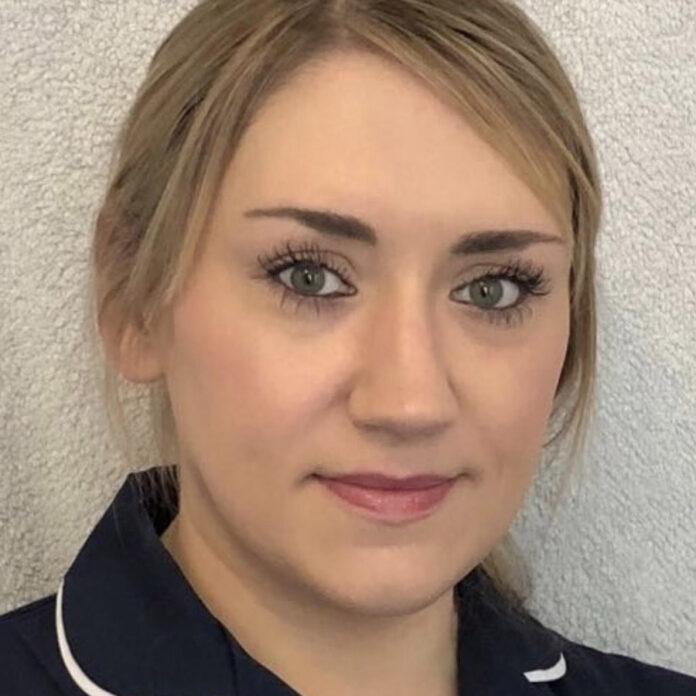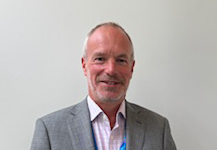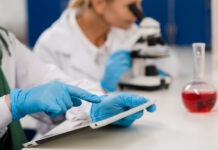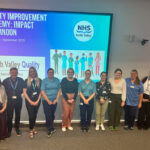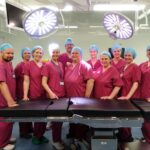Tell us a little about your job
I work as a Specialist Nurse Organ Donation (SNOD for short) – based within the Critical Care Department at Forth Valley Royal Hospital. The main part of my job is to facilitate the organ donation process and support potential donor families throughout this time. Ensuring patients get the best end of life care possible and ensuring any decisions or wishes they had to be a donor are fulfilled, is a really important part of my role.
My core working hours are 9am-5pm however, as part of a team of specialist nurses, we cover all donor activity across Scotland – a 24/7 service which also involves working 19-hour oncall shifts.
Other aspects of my job involve carrying out audits, following up any actions post donation, providing education to staff and students and attending promotional events, such as the Organ and Tissue Donation Week and Race for Recipients to raise awareness about donation and discussing this with the public.
Why did you want to become involved in organ donation?
Before I became a SNOD in 2016, I previously worked as an ICU Nurse. I always remember how caring and compassionate my local SNODs were and the incredible amount of support they provided to bereaved families. I was always interested to learn more about donation and transplantation.
Did anything in particular inspire you?
Shortly after becoming the Organ and Tissue Donation Link Nurse for ICU, I attended a study day run by the SNOD team. It was here I met Ben, a man in his early 30s, that had previously received a double lung transplant.
Ben shared his own personal story on how the transplant not only saved his life, but completely transformed his quality of life, enabled him to achieve things he never thought possible and allowed him to see his young children grow up. I was blown away by his experience and the difference this transplant had made to all aspects of his life.
Also, I didn’t previously appreciate it’s only about 1% of the population that can be go on to be a donor and there are still far too many people dying needlessly awaiting a transplant.
What sort of skills do you need for your role?
Great communication skills, patience, empathy, resilience, time management and being as organised as possible (the workload can be unpredictable at times). The ability to stay calm in stressful situations and some good IT skills come in handy too!
How do you overcome the sadness that is attached to your post?
Having worked in A&E and ICU before, I had experience of caring for patients at the end of their life and supporting bereaved families. Although this can be challenging at times, I try to focus more on the bigger picture and the positives rather than the negatives.
Knowing that the patient has had the best end of life care possible and left such an amazing legacy of saving the lives of others, awareness that the donor family will, in time, take some comfort out of their loved one’s donation and for the recipients and their families, knowing what a positive impact that a transplant will make to each of their lives, can really make it all worthwhile.
Also just talking about how we are feeling with colleagues can be helpful, as they are aware exactly how emotional it can be.
What are you like first thing in the morning?
Usually in need of some caffeine! I function better after a morning coffee 😊
What’s your guilty food pleasure?
I do enjoy Thai food.
Where are you happiest?
Usually on a beach somewhere, in the sunshine.
Who was your teenage crush?
I was a fan of Boyzone back in the day! Ronan and Keith were my favourites.
What is top of your bucket list?
I do love to travel and explore local places when on holidays. South America, Japan, New Zealand and Australia are some of the top places on my bucket list (just not too keen on the massive spiders!).
The mantra you live by?
Live and let live.
